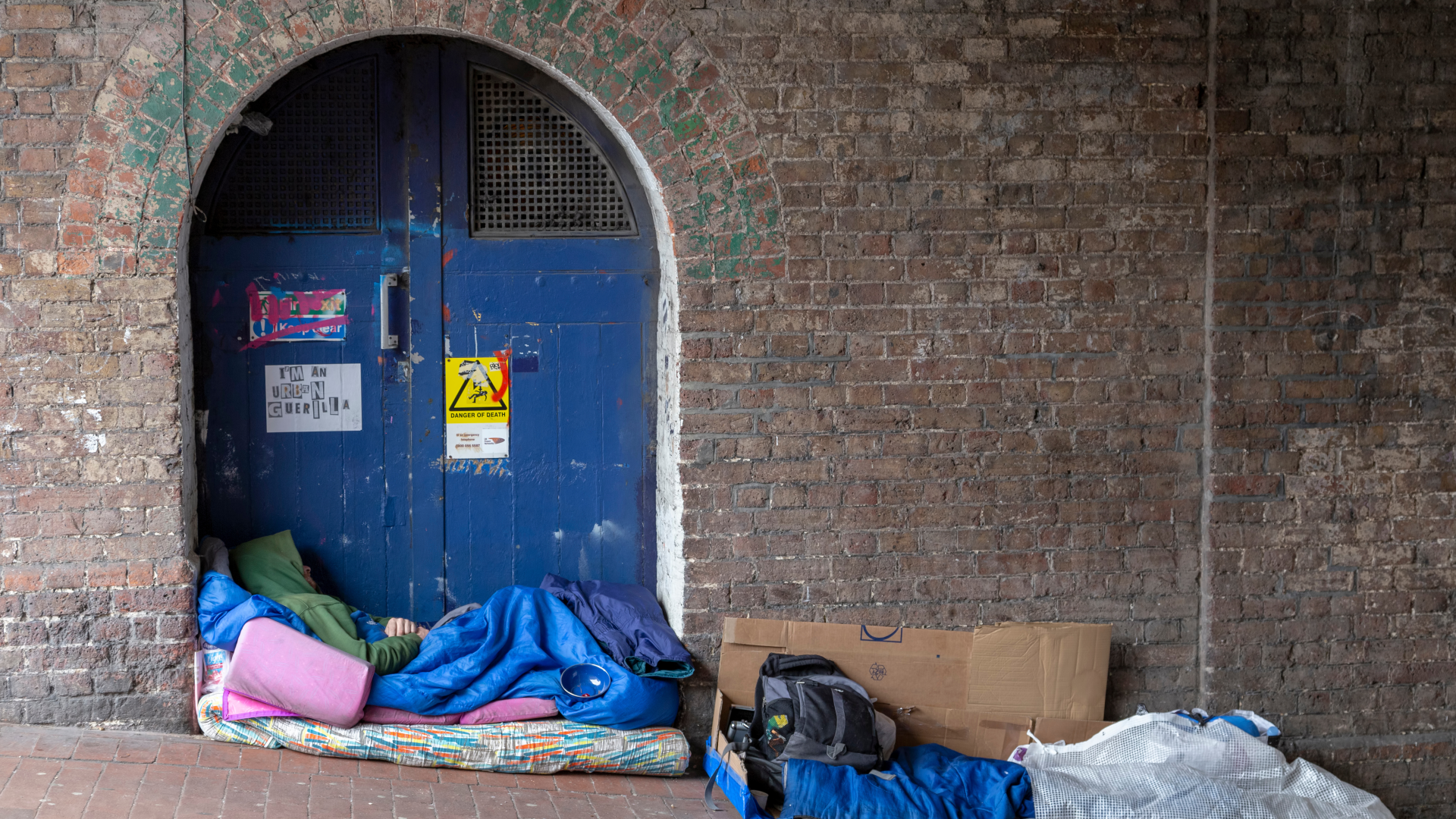
Prevention must be at the centre of our approach to tackling homelessness
Prevention must be at the centre of our approach to tackling homelessness
In the midst of a housing crisis and cost of living pressures, homelessness in England is on the rise again. The number of households in temporary accommodation is now at 104,510, up 10% from March last year and double the number in 2010. The number of people sleeping rough has also risen, and as it stands, the government is on the verge of breaking its commitment to end rough sleeping by 2024.
In our new Demos-Centre for Homelessness Impact discussion paper, we found that efforts to tackle homelessness have disproportionately focused on crisis interventions, neglecting upstream prevention measures, such as housing subsidies and employment interventions.
To end homelessness for good, this needs to change.
At Demos, we have called for two shifts that will enable us to move towards a ‘preventative state’: first, for a new focus on foundational policies which directly influence the foundations we all need to live a good life; second, for existing public service delivery models to shift upstream.
A universal approach to preventing homelessness
Homelessness often occurs when a combination of circumstances, from poverty to ill-health, make it difficult for people to protect themselves from losing their home. Childhood poverty is a predictor of homelessness in adulthood, for example.
Additionally, the UK’s shortage of affordable housing and insecurity in the private rented sector is limiting the effectiveness of the prevention policies that do exist. Only 59,000 of new homes supplied in 2021-22 were affordable, with only 13% offering the lowest rents and higher security of tenure offered by social housing rents.
To achieve lasting change, we need a universal approach to prevention that reduces the risk of homelessness across the population, and policies that tackle overall socio-economic disadvantage have a role to play in doing this.
Breaking down silos
Efforts to tackle homelessness all too often happen in silos, hindering universal prevention efforts. National government homelessness strategies in England rarely consider how wider policies, like healthcare and welfare benefit spending, can impact homelessness prevention. Reductions in Local Housing Allowance, for example, have reduced affordability in the private rented sector and the welfare system’s effectiveness in protecting private renters from homelessness.
At the local level, statutory duties to prevent homelessness tend to fall on Local Housing Authorities. Public sector agencies are not required to cooperate with local councils to support people at risk of homelessness, meaning we are missing opportunities to provide integrated support at a much earlier stage.
Building a stronger evidence base
There is lack of evidence on the most effective and cost-efficient interventions to prevent homelessness. Although many local initiatives show promise, they lack rigorous-testing and there is a lack of understanding of what works in different contexts and local areas.
A robust evidence base is needed to help us more easily identify and scale effective prevention efforts.
Solutions
A common vision for preventing homelessness at the national level, backed by strong data on what works best, is essential to guide this shift to a more upstream, universal approach.
Better leveraging housing benefit spending to help prevent homelessness and increasing security for renters in both the private and social sectors can create the foundations needed to protect people from losing their homes.
Additionally, building on promising local practice, like local ‘Duty to Prevent’ partnerships, would enable local agencies to work together to proactively identify and assist people at a higher risk of homelessness before they reach crisis point.
While the merits of prevention is something politicians have talked about before, much less thought has gone into how it can actually work in practice. Our paper makes an important attempt to dive into the complexities of what an effective preventative approach to homelessness could look like. By embracing the changes we’ve called for, we can transform our approach to homelessness prevention in England and ultimately eradicate it for good.
You can watch the launch event where we discuss the strategies set out in this paper, with an expert panel of Paula Barker MP, Shadow Minister for Homelessness and Rough Sleeping; Vicky Spratt, Housing Correspondent at The i Paper and Dr Lígia Teixeira, Chief Executive, Centre for Homelessness Impact, on our YouTube channel here.
